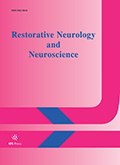Authors: Brandt, Thomas | Zwergal, Andreas | Jahn, Klaus | Strupp, Michael
Article Type:
Research Article
Abstract:
In 2009 the German BMBF (German Ministry of Education and Research) established an Integrated Center for Research and Treatment (IFB^{LMU}) of Vertigo, Balance and Ocular Motor Disorders in Munich. After the 10-year period of funding by the BMBF, it is envisioned that the IFB^{LMU} will continue over the long term with the joint support of the University Hospital, the Medical Faculty, and the Bavarian State. Vertigo is one of the
…most common complaints in medicine. Despite its high prevalence, patients with vertigo generally receive either inappropriate or inadequate treatment. This deplorable situation is internationally well known and its causes are multiple: insufficient interdisciplinary cooperation, no standardized diagnostics and therapy, the failure to translate findings of basic science into clinical applications, and the scarcity of clinical multicenter studies. The IFB^{LMU} will constitute a suitable tool with which these structural, clinical, and scientific deficits can be overcome. It will also make possible the establishment of an international interdisciplinary referral center. Munich has become the site of a unique concentration of leading experts on vertigo, balance and ocular motor disorders, both in the clinical and basic sciences. Academic structures have paved the way for the creation of an interdisciplinary horizontal network that also allows structured, vertical academic career paths via the Bachelor's and Master's degree programs in Neuroscience, a Graduate School of Systemic Neurosciences, and the Munich Center for Neurosciences - Brain and Mind. The IFB^{LMU} has the following objectives as regards structure and content: to create an independent patient-oriented clinical research center under the auspices of the Medical Faculty but with autonomous administration and budget; to overcome existing clinical and academic barriers separating the traditional specializations; to establish a standardized interdisciplinary longitudinal and transversal network at one site for the management of patients. This should professionalize both the management and the international recruitment of patients (integrated care, telemedicine); to organize the study infrastructure for prospective multicenter clinical studies as well as to free clinical scientists from administrative tasks; to promote translational research with a focus on the innovative topics of molecular, functional and structural imaging, experimental and clinical pharmacotherapy, clinical research of vertigo and balance disorders, mathematical modelling, interaction between biological and technical systems (robotics), and research on functionality and the quality of life; to offer new attractive educational paths and career images for medical doctors, students of the natural sciences, and engineers in clinical research in order to overcome traditional hierarchical structures. This should promote the principles of efficiency and self-reliance; to supplement the existing excellence with up to eight groups of young scientists and up to eight professorships (tenure track). This should also be seen as an incentive that will attract the best young scientists; to incorporate IFB^{LMU} competence into the existing medical and biological graduate schools. The IFB^{LMU} is a unique center – worldwide.
Show more
Keywords: Vertigo, balance, locomotion, ocular motor disorders, institutional profile, integrated clinical center
DOI: 10.3233/RNN-2010-0510
Citation: Restorative Neurology and Neuroscience,
vol. 28, no. 1, pp. 135-143, 2010
Price: EUR 27.50





